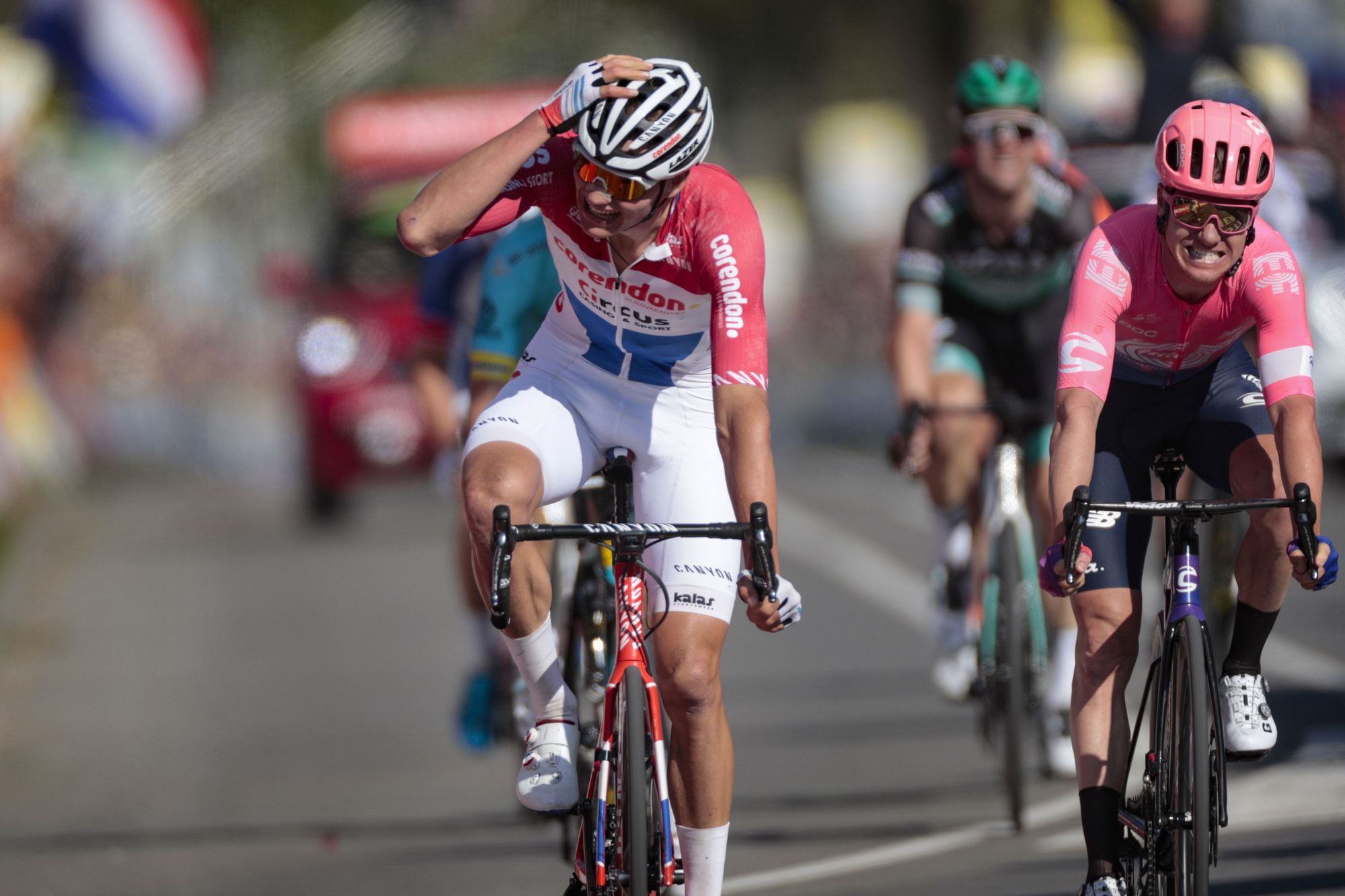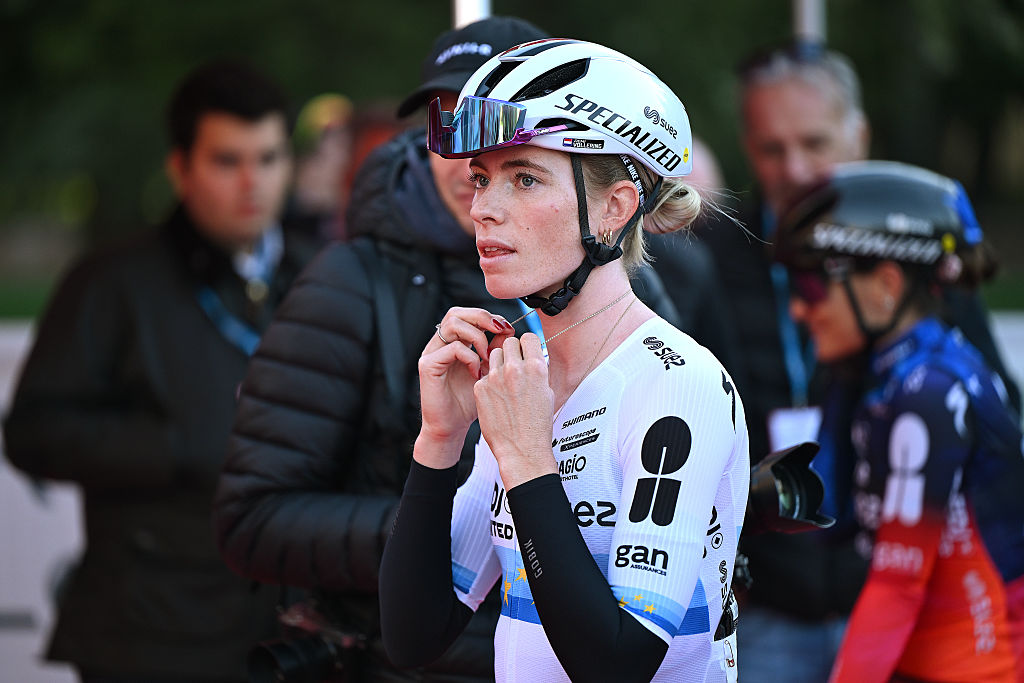Like father, like son: Mathieu van der Poel's Amstel Gold Race win mirrors Adrie's 1990 triumph
'When I won there were also two men in front. But he is stronger than me'
The latest race content, interviews, features, reviews and expert buying guides, direct to your inbox!
You are now subscribed
Your newsletter sign-up was successful

The finishing straight of Amstel Gold Race. Two riders in front ready themselves to sprint for the victory, but a group is closing quickly from behind. In the closing metres, the chasers are suddenly upon them, and Van der Poel flashes past to claim the win at the death. Sound familiar?
Mathieu van der Poel’s last-gasp victory at Amstel Gold Race on Sunday was not entirely without precedent. In 1990, his father Adrie triumphed in the Dutch Classic in remarkably similar circumstances. On that occasion, Luc Roosen and Jan Goessens carried a seemingly unassailable lead into the finale in Meerssen but were overhauled at the last by Adrie van der Poel.
That triumph proved to be the final Classic victory of the 31-year-old’s career, to sit alongside earlier wins at the Tour of Flanders (1986) and Liège-Bastogne-Liège (1988). On Sunday, his son Mathieu – still only 24 – claimed Amstel victory by swooping past Julian Alaphilippe and Jakob Fulgsang in a breathless finale in Valkenburg.
“But the big difference was that I only had to make up for eight seconds on the front runners, whereas Mathieu had to make up 40 to 50 seconds," Adrie van der Poel told Sporza.
Mathieu van der Poel has had his first taste of the Classics this season, but the Dutch champion was listed as the favourite for Amstel Gold Race despite his relative inexperience on the road. His wins at Dwars door Vlaanderen and Brabantse Pijl in recent weeks, not to mention striking displays en route to fourth at Gent-Wevelgem and the Tour of Flanders, meant that he entered the race a marked man.
As is his wont, Van der Poel went on the offensive from distance, attacking on the Gulperberg with 43km to go. He was quickly hauled in, however, and when Alaphilippe and Fuglsang powered clear on the Eyserbosweg shortly afterwards, it looked as though Van der Poel had made a tactical error.
Alaphilippe and Fuglsang had a lead of 50 seconds on the main chasing group on the Cauberg in the finale, and still seemed to hold a healthy margin over the top of the final haul up the Bemelerberg. In the closing kilometres, however, Van der Poel took up the reins of pursuit in earnest, and as the leaders eyed one another out in front, the chasers closed to within touching distance in the final kilometre.
The latest race content, interviews, features, reviews and expert buying guides, direct to your inbox!
“After his attack on the Gulpenerberg, Mathieu missed the move with the leading group. But afterwards he fought himself into an ideal situation", Adrie van der Poel said. “If you still have power in the final, there is still a chance to win, because there was a headwind on the Bemelerberg and in front they will normally have some doubts before the sprint.
"If you are 10 seconds behind at the red flamme rouge and you know that you have wind at your back during the sprint, then you have to take the risk of starting the sprint from distance. And Mathieu did that.”
With Corendon-Circus not invited to Flèche Wallonne and Liège-Bastogne-Liège, Amstel Gold Race brings the curtain down on Mathieu van der Poel’s remarkable Classics campaign. Despite overtures from WorldTour squads, Mathieu van der Poel will continue to mix road, cyclo-cross and mountain biking for the time being, with an eye to the Tokyo 2020 Olympics.
“He still surprises me, even though I know his abilities and his way of training,” Adrie van der Poel told RTBF. “He’s won Amstel 29 years later, practically in the same way. When I won there were also two men in front. But he is stronger than me.”

